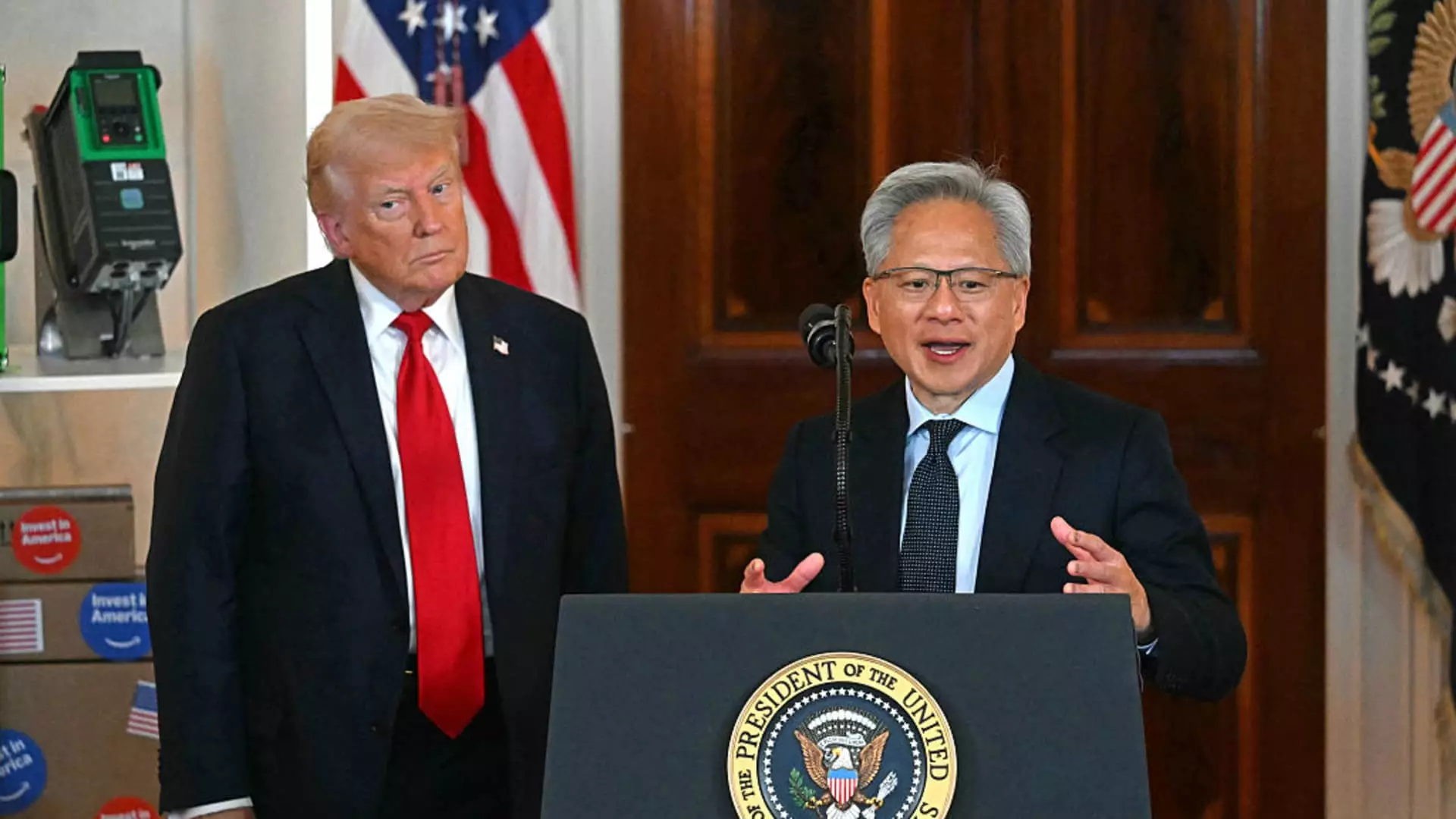In today’s global landscape, technology is not merely a tool but a symbol of national power and strategic advantage. The recent controversy surrounding the sale of advanced AI chips to China exposes deep vulnerabilities in U.S. policy and highlights the perilous balance between economic interests and national security. While some policymakers dismiss these concerns as exaggerated, the reality is that the export of cutting-edge technology—especially AI semiconductors—serves as a battleground for influence, control, and future dominance.
The recent bipartisan pushback from certain Senate Democrats underscores the gravity of this issue. Their open letter strongly criticizes President Trump’s decision to permit Nvidia and AMD to sell AI chips to China in exchange for a revenue cut—a move they argue is a Faustian bargain that risks America’s technological supremacy. This sentiment reveals a broader skepticism of allowing economic negotiations to compromise national security, especially when such negotiations could embolden adversaries and undermine decades of American innovation leadership.
Questionable Reciprocity and the Illusion of Profit
At the heart of the controversy is the peculiar framing of these deals as “revenue-sharing” arrangements with the U.S. government. Critics argue that this kind of arrangement is shortsighted; essentially, America is giving up a strategic advantage for immediate financial gain. The chips in question—Nvidia’s H20 and AMD’s MI308—are designed to power AI applications that could have military implications, directly or indirectly, even if companies like Nvidia deny any military use.
What’s troubling is the philosophy underpinning these negotiations. Is it truly a strategic wise move to profit from the very technology that can—by design—contribute to military modernization in China? This dilemma is emblematic of broader issues in U.S. economic policy: balancing short-term revenue versus long-term sovereignty. Historically, the United States leveraged technological restrictions as a national security tool, an approach that effectively maintained a technological edge. Now, those barriers are being relaxed, raising questions about the future of American technological supremacy.
The Double Standards of Policy and the Erosion of Trust
The government’s decision and the subsequent reluctance to oppose Chinese tech advancement appear inconsistent with previous U.S. strategies that prioritized technological control for security reasons. The White House’s dismissive attitude towards concerns voiced by lawmakers—blaming Democrats for being ‘absent’ when similar technology was exported under past administrations—further entrenches the perception that current policies are driven by political expediency rather than strategic necessity.
This dissonance damages America’s credibility on the world stage. If the U.S. relaxes export controls without an explicit, compelling strategy, it signals to China and other competitors that America’s technological edge is negotiable. This perception could accelerate China’s ambitions to develop independent AI capabilities, eroding the very leadership that the U.S. has maintained for decades. Moreover, the subtle economic pressures and restrictions already faced by U.S. chip companies operating in China highlight that the nation is not entirely in control of its own technological future.
The Risks of complacency and the Path Forward
The policy trajectory seems dangerously complacent. If the U.S. continues to prioritize short-term revenue over strategic dominance, it risks ceding ground in the most critical battlefield of the 21st century: artificial intelligence and advanced semiconductors. The decision to sell high-end chips to China, even under scrutiny, suggests a broader pattern of issuing concessions that threaten the long-term health of American technological innovation.
A more prudent approach would be to establish clear, enforceable export controls designed not just to restrict Chinese military development but to safeguard the fundamental American advantage in these technologies. This might include tighter restrictions, investment in domestic semiconductor innovation, and working more collaboratively with allies to maintain a united front against technological proliferation. Ignoring these threats risks turning a fleeting economic benefit into a strategic liability—a cost the nation cannot afford as the global AI race intensifies.
The debate over AI chip sales to China encapsulates a fundamental choice: Will America prioritize short-term gains at the expense of long-standing strategic dominance, or will it reaffirm its commitment to technological leadership? The answers we choose today will shape the global balance of power for generations to come.

